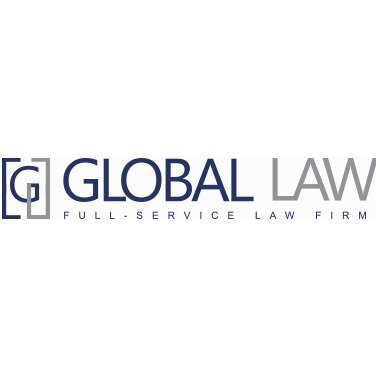Best Lawsuits & Disputes Lawyers in Ukraine
Share your needs with us, get contacted by law firms.
Free. Takes 2 min.
Or refine your search by selecting a city:
List of the best lawyers in Ukraine
About Lawsuits & Disputes Law in Ukraine
Ukraine's legal system for handling lawsuits and disputes is primarily based on the civil law tradition, which emphasizes codified laws rather than case law precedents. The legal framework governing disputes in Ukraine is comprehensive, with procedural codes outlining the processes for civil, commercial, administrative, and criminal disputes. The Ukrainian judiciary system comprises several courts, including local courts, appellate courts, and the Supreme Court of Ukraine, which is the final court of appeal.
Why You May Need a Lawyer
There are various situations where you might find yourself in need of legal assistance in Ukraine, particularly involving lawsuits and disputes. Common scenarios include disputes related to contractual obligations, property disputes, employment disagreements, family law issues (such as divorce or child custody), business conflicts, and personal injury claims. Additionally, foreign entities engaging in business in Ukraine may require legal guidance to navigate commercial disputes effectively. In all these cases, a lawyer's expertise can be invaluable in ensuring your rights are protected and in achieving a favorable outcome.
Local Laws Overview
In Ukraine, the legal framework for lawsuits and disputes is primarily governed by the Civil Code and the Civil Procedure Code. The Commercial Procedure Code is particularly relevant for business-related disputes. Ukraine has made significant strides in reforming its judiciary to ensure greater transparency and fairness. Key legislative provisions include rules for filing lawsuits, jurisdictional requirements, mediation procedures, and mechanisms for enforcement of judgments. It is critical to adhere to specific procedural requirements and deadlines to ensure the success of legal actions in Ukraine.
Frequently Asked Questions
What is the process for filing a lawsuit in Ukraine?
To initiate a lawsuit in Ukraine, you must file a written statement of claim with the competent court, detailing the facts of the case, legal grounds, and the relief sought. It is important to ensure that all procedural requirements are met, including paying the requisite court fees.
How long does it usually take for a dispute to be resolved in Ukrainian courts?
The time frame for resolving disputes can vary widely based on the complexity of the case, the court's workload, and whether appeals are filed. On average, it may take several months to over a year for a case to be concluded.
Are there alternative dispute resolution options available in Ukraine?
Yes, alternative dispute resolution methods such as mediation and arbitration are available and increasingly used in Ukraine to resolve disputes more effectively and amicably.
What should I do if I receive a court summons?
If you receive a court summons, it is crucial to respond promptly and seek legal advice to understand the implications of the proceedings and to prepare your defense adequately.
Can foreigners file lawsuits in Ukrainian courts?
Yes, foreigners have the right to file lawsuits in Ukrainian courts. However, it may be particularly beneficial to engage a local lawyer familiar with the Ukrainian legal system.
What are the enforcement mechanisms for court judgments in Ukraine?
Once a court judgment is obtained, it can be enforced through the state enforcement service or private enforcement procedures, depending on the nature of the judgment and the debtor's assets.
How can I appeal a court decision in Ukraine?
Appeals can be filed within a specific time frame following a court's decision, typically within 30 days. An appellate court will review the case based on the grounds stated in the appeal.
Is legal representation mandatory in Ukrainian courts?
While individuals can represent themselves, legal representation is strongly advised due to the complexities of legal procedures and the potential consequences of a poor defense.
What legal recourse is available for breach of contract disputes?
Remedies for breach of contract in Ukraine include specific performance, damages, and contract termination, depending on the nature and impact of the breach.
How can I find a qualified lawyer in Ukraine?
Qualified lawyers can be found through local bar associations, legal directories, or referrals from other professionals. It is important to choose a lawyer with expertise specific to your legal issue.
Additional Resources
Several resources can assist those seeking legal advice in Ukraine:
- The Ukrainian Bar Association offers resources and referrals for legal matters.
- The Ukrainian Ministry of Justice provides information on laws and legal procedures.
- Consult legal aid clinics and non-governmental organizations for assistance, particularly if cost is a concern.
- Professional legal directories and networks can help identify reputable legal professionals specializing in specific areas of law.
Next Steps
If you find yourself needing legal assistance with a lawsuit or dispute in Ukraine, the following steps can help you move forward:
- Assess the nature of your legal issue and gather all relevant documentation.
- Consult with a qualified legal professional to understand your rights and options.
- Prepare to file or respond to legal actions within the prescribed time limits.
- Consider alternative dispute resolution options, if appropriate, to potentially save time and costs.
- Stay informed about your case's progress and maintain open communication with your lawyer.
By taking these steps, you can navigate the legal system more effectively and work towards resolving your disputes in a manner that aligns with your interests.
Lawzana helps you find the best lawyers and law firms in Ukraine through a curated and pre-screened list of qualified legal professionals. Our platform offers rankings and detailed profiles of attorneys and law firms, allowing you to compare based on practice areas, including Lawsuits & Disputes, experience, and client feedback.
Each profile includes a description of the firm's areas of practice, client reviews, team members and partners, year of establishment, spoken languages, office locations, contact information, social media presence, and any published articles or resources. Most firms on our platform speak English and are experienced in both local and international legal matters.
Get a quote from top-rated law firms in Ukraine — quickly, securely, and without unnecessary hassle.
Disclaimer:
The information provided on this page is for general informational purposes only and does not constitute legal advice. While we strive to ensure the accuracy and relevance of the content, legal information may change over time, and interpretations of the law can vary. You should always consult with a qualified legal professional for advice specific to your situation.
We disclaim all liability for actions taken or not taken based on the content of this page. If you believe any information is incorrect or outdated, please contact us, and we will review and update it where appropriate.
Browse lawsuits & disputes law firms by service in Ukraine
Ukraine Attorneys in related practice areas.
Browse lawsuits & disputes law firms by city in Ukraine
Refine your search by selecting a city.

















